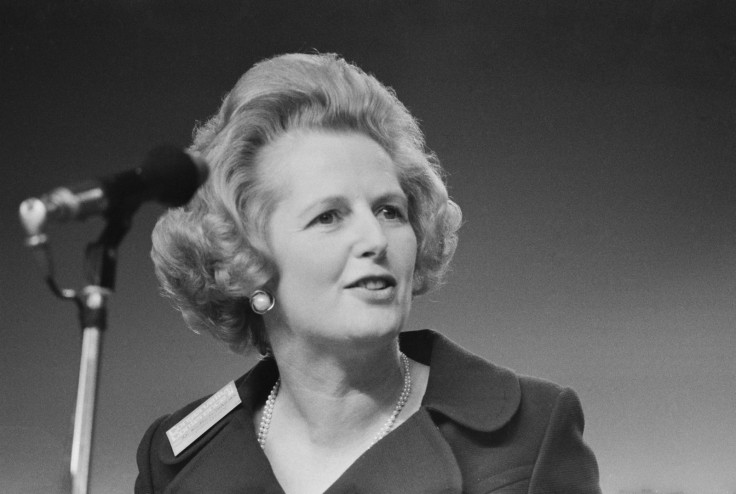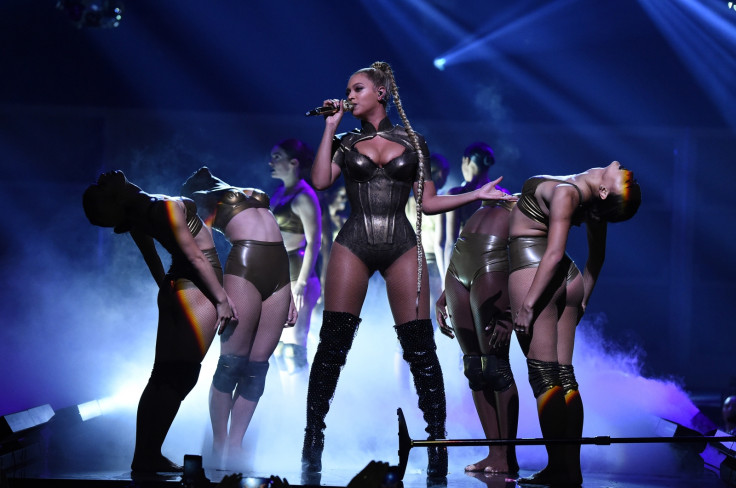Margaret Thatcher, Beyonce and Bridget Jones – Most influential women of the last 70 years
The 2016 Woman's Hour Power List names seven women who have had the most impact on British women's lives.

The former British Prime Minister Margaret Thatcher has been named the most influential woman of the past seven decades, beating singer-songwriter Beyonce and ficticious character Bridget Jones.
The politician came top of seven women selected in the 2016 BBC Woman's Hour Power List, which celebrates a "woman's body of work or her role as a catalyst for change over the past 70 years", as well as those having an impact today.
Emma Barnett, chair of the Woman's Hour Power List 2016 judges, said: "Love or loathe her, it is hard to think of another woman who has had more of an impact on British women than Baroness Margaret Thatcher within the last seven decades.
"Anyone born in the '80s, and thereafter, grew up thinking it was normal for a woman to run the country; anyone over the age of 18 while she was in charge was shaped by her leadership style and uncompromising policies. In fact a whole generation of women's feminism was formed in direct retaliation to her."
Others listed include women's rights campaigners Helen Brook and Germaine Greer, trade unionist Jayaben Desai and politician Barbara Castle.
Margaret Thatcher
Britain's first female prime minister, Thatcher has been described by the judging panel as a "female warrior leader" who had a positive and negative impact on women in the UK. Admitting she is a contentious choice for the top spot, the judges pointed out Thatcher galvanised a generation of feminists in opposition to her leadership.
Helen Brook
The founder of the Brook Advisory Centres, Brook made contraception available to unmarried women. Born in 1907, Brook was a volunteer at the Family Planning Association in the 1950s, at a time when the organisation only gave advice to married women. She established the Brook Advisory Centres in 1964, which for the first time, allowed unmarried, young people to access services.

Germaine Greer
One of the major voices of the second-wave feminist movement, Greer paved the way for modern feminists today. Her book, The Female Eunuch, was published in 1970, which argues the notion of the "traditional" nuclear family sexually represses women, became an international bestseller and sparked a global conversation about women's sexual liberation. Greer is as much as a controversial voice as an influential one, however, coming under fire for her comments on transgender women.
Jayaben Desai
Born in Gujarat in western India, Desai then moved to Tanzania before coming to Britain in the 1960s, where she took up low-paid work operating sewing machines. She then began working at the Grunwick film-processing factory, before resigning after being asked to work overtime. Rallying against the poor working conditions in the factory, she instigated one of Britain's biggest strikes among the predominantly female and Asian workforce. Around 20,000 workers supported the walkout, which lasted two years.

Barbara Castle
The British Labour Party politician was the longest-serving female MP in the history of the Commons until her record was broken in 2007. She broke several glass ceilings, first by gaining at place at the largely all-male Oxford University – and then into the male world of politics. Following the mass strikes by women at the Ford car plant in Dagenham, Castle was the instigator behind the Equal Pay Act in 1970, the first legislation outlawing pay discrimination between men and women in Britain.
Bridget Jones
The star of the 1996 bestseller Bridget Jones' Diary and the big-screen adaptations, Jones has since been a firm favourite for narrating her life as a 30-something single woman in a world of married couples. "Twenty years ago she ushered in the voice of a woman narrating her own banality as well as her own complexity," Power List judge Julia Hobsbawm commented.
Beyonce
The American singer-songwriter rose to fame in the 1990s as one third of one of the bestselling all-female groups of all time, Destiny's Child. Since launching her solo career, Beyonce has sold more than 100 million records to become one of the bestselling artists in history. Through her music, Beyonce is as much of a political activist as she is musician, launching global conversations about feminism and black women's rights.
© Copyright IBTimes 2025. All rights reserved.






















